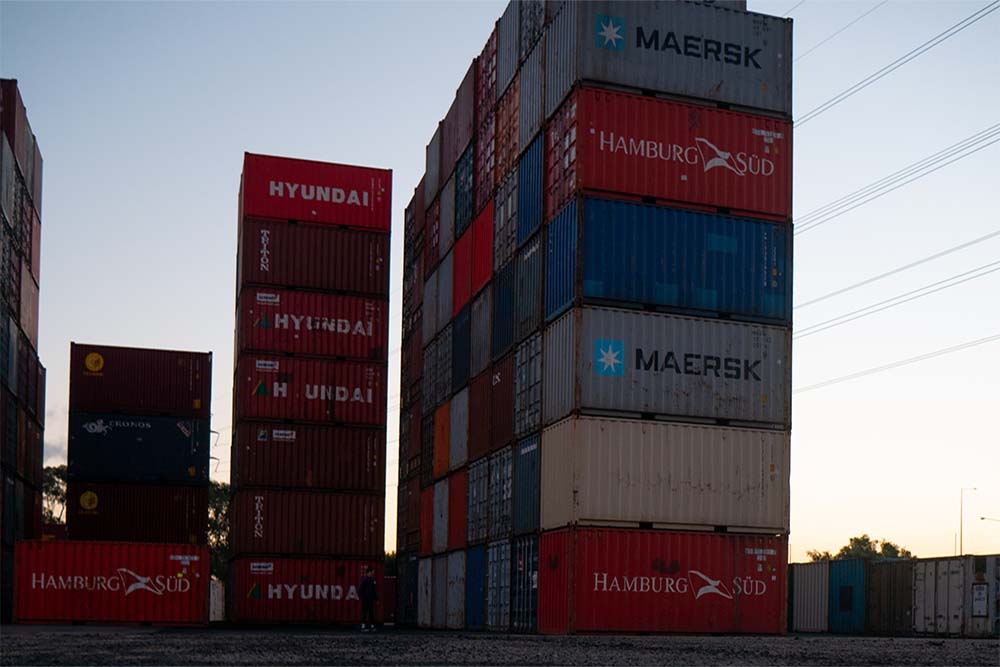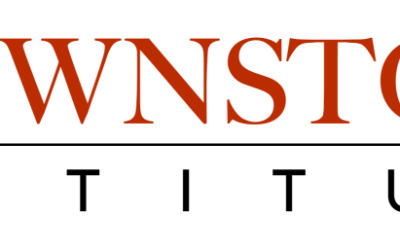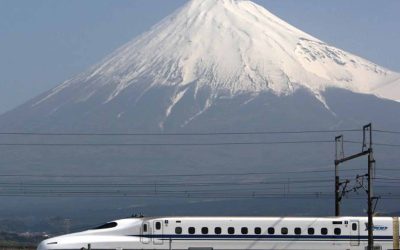The vote by Canada’s Parliament to declare the actions of the Chinese Communist Party (CCP) in the region of Xinjiang a genocide against the local Uyghur people is the latest in a series of events that highlight the growing discordance between Western and allied democracies and the increasingly repressive and aggressive regime in Beijing. The Chinese government also engages in cultural repression, surveillance or discrimination against its Tibetan, Mongolian and Korean minorities.
China has benefited immensely from the open trade, travel and investment system that has been created and nurtured since the Second World War and which it only gradually entered into about 40 years ago. However, it is engaged in behaviour that is counter to the spirit, and sometimes the letter of law of the international treaties and organizations of which it is, respectively, a signatory or member.
As a member of the United Nations, China is required to respect the territorial integrity of other nations, yet it has violated such strictures in its naval incursions into Japanese, Korean, Vietnamese, Philippine and Taiwanese waters. Moreover, it has built permanent militarized bases on rocks, shoals and islets in the South China Sea, which it has claimed largely as its own, counter to rulings by global bodies.
It has also kidnapped foreign nationals abroad and in its own borders and held them with little outside contact or counsel, including two Canadians, still imprisoned after over two years’ time on bogus espionage charges. It violated the treaty it signed with the United Kingdom which granted Hong Kong autonomy in domestic affairs until 2047. It has now effectively taken control of the territory.
It has invaded India’s territory and assaulted its troops, killing several, in Ladakh in the northwestern Himalayas, Sikkim in the central Himalayas, in Arunachal Pradesh and in a border area with the dual neighbour of Bhutan. It has rammed foreign vessels and otherwise engaged in hostilities in its aforementioned naval adventures. Its fishing vessels have poached in neighbours’ waters.
It has tried to insert itself into the Arctic Council, although it is not an Arctic nation. It uses the Paris Climate Accord to its advantage: it does not have to cut greenhouse gas emissions until 2035, whereas Canada and now, again, the United States, must reduce GHGs substantially indefinitely. China is building one large coal-fired power station weekly. China also ties other nations, poor or developed, to it with onerous debt-financed infrastructure projects in its Belt and Road Initiative.
China also requires foreign corporations doing business with it to enter joint ventures which coercively transfer intellectual property to local favoured firms, some of them state-owned. It conducts industrial and scientific espionage by infiltrating foreign companies, universities or multi-government bodies or by cyber-hacking. It has compelled foreign companies and organizations to kowtow to its political orthodoxy on Hong Kong, Xinjiang, Tibet and other matters. It fosters hostility among its citizens to Western nations and its neighbours and others that do not acquiesce to its official pronouncements.
It has also used trade and investment as a weapon. It punished Canada for arresting a Huawei executive, Meng Wanzhou, by not only incarcerating the two blameless Canadian citizens but forbidding or impeding import of Canadian canola, meat and other products. It did similar things to Australian coal and wine when that nation’s government suggested an independent investigation into the origins of the SARS-Cov-2 virus that caused the COVID-19 pandemic. Indeed, Beijing’s actions to hide evidence and silence COVID-19 doctors, including at a virology institute with previously flagged safety flaws, are contrary to true transparency, accountability and responsibility internationally.
China also used trade against South Korea and Japan in the past; the former when it dared to install anti-missile defences against the hostile and volatile North Korean regime and the latter when it dared to defend against Chinese maritime incursions in its East China Sea island territories’ waters.
Also used as a weapon, in the incident with Japan, and threatened last year by Beijing: rare earth and similar rare elements mined and refined in China that are not easily obtained or produced elsewhere in the world. These minerals are crucial in electronics, solar panels, fibre optics, wind turbines, batteries, LEDs, computers, televisions, cellphones, electric motors and many other specialty products vital to modern life, including in components of defence products which could be a problem if conflict flares.
Conscious of this vulnerability, the U.S. and Canadian governments are promoting the active exploration for, and development of these minerals and financing refining of them, which is complex and expensive. Many large corporations have become dependent on investment, trade and production in China and also in selling to its large consumer and industrial markets. Apple, Tesla, Foxconn of Taiwan and Taiwan Semiconductor are four of the most well-known examples. Not only do they have large end markets there, all have major, billion-dollar-plus facilities in that land, which could be held hostage to any trade or diplomatic stand-off with respect to Taiwan, Xinjiang or other flash-point issues.
The U.S. government is attempting to lure and retain on its shores, more integrated, circuit and other sensitive technological production. It has also begun forbidding the export or sharing of the most cutting-edge IT hardware and software products and intellectual property to China, but some of those horses have already left the barn.
Should there be a major stand-off with Beijing, Western nations or the CCP regime itself may institute trade or investment embargoes or even freeze assets. During both world wars, the belligerents on either side confiscated the assets of foreign companies and nations that were within their territories. China is already officially communist and could at any time reassert its socialist mission to control what is currently “private” property (they sometimes do this arbitrarily to their own capitalists). They may selectively do this, or effectively do so in practice, to punish firms or nations that fall from their favour.
Western governments need to be fully aware of what they may be in for in the escalating disputes with China. It plays hardball, does not feel confined to international norms or laws and has a great deal of scope of damage it can do. Officials in Ottawa or Washington may not feel anything directly themselves, but their companies and citizens might and in some unexpected and painful ways. Investors, businesses, retailers, consumers and importers and exporters should be aware of these risks and limit their exposure, reducing the potential harm the decoupling from China will cause.
There were many warning signs and some outright major incidents on the road to conflict prior to both world wars, including increasing repression, persecution and abuses within the autocracies’ borders and in aggression abroad. While full conflict with Beijing is not inevitable, the current regime there seems determined to test the limits of what it can extract and extort from the rest of the world. It is not inclined to abide by international law when it calculates that it can get away with it without consequences.
The CCP leadership wants to remake the rest of the globe in its illiberal mould and brooks no opposition. It may not be possible to interact in confidence with that regime commercially, financially, legally or otherwise until it changes its political strategy, philosophy and behaviour. Wariness and resolve are crucial and so is less reliance on markets, products or services from or within an increasingly adversarial and very strong rival nation.
There is a long history of not being able to trust agreements with regimes that have as their foundation disrespect for the fundamental values of the other parties to those agreements. The CCP has apparently decided that they wish to dominate any and all other nations; they seek submission on their terms. It is up to free nations and free peoples to resist and find alternatives to that campaign of coercion and extortion. It is not too late. It will be difficult and likely costly, but necessary to preserve cherished values, at home and abroad.
The longer action is delayed, the harder it will be. Dependence on any single large nation is hazardous; dependence on an unreliable and adversarial one whose leaders have principles and aims antithetical to our own is dangerous and foolhardy. Inaction and acquiescence by Western democracies to increasing aggression by vicious, hostile, genocidal and militaristic dictatorships prior to the Second World War emboldened the latter and nearly allowed those horrific regimes to conquer the globe.
Early intervention by strengthening economic, industrial, technological and military capabilities and development of alternatives to trade and investment with those who wish us ill are still possible and vital. Willful ignorance is no longer a viable strategy. Confrontation and refusal to co-operate in one’s own domination may be unpleasant to the squeamish, but it is the only way to deal with bullies and their belligerence. Sadly, defiance and sometimes even force, are the only things that will work with such regimes or mentality.
It took enormous effort by the Allied powers to inflict a severe beating and defeat for the Axis powers to surrender and conclude that their ideology, strategy and course of action were not sensible or even desirable. It does not have to come to that with Beijing. Determined opposition to their heinous behaviour and securing alternatives to reliance on them should suffice. Making that happen needs to start now. The liberal free market nations are capable of it. Only the will to do so is questionable.
Ian Madsen is a senior policy analyst with the Frontier Centre for Public Policy.
Photo by Pat Whelen on Unsplash.



